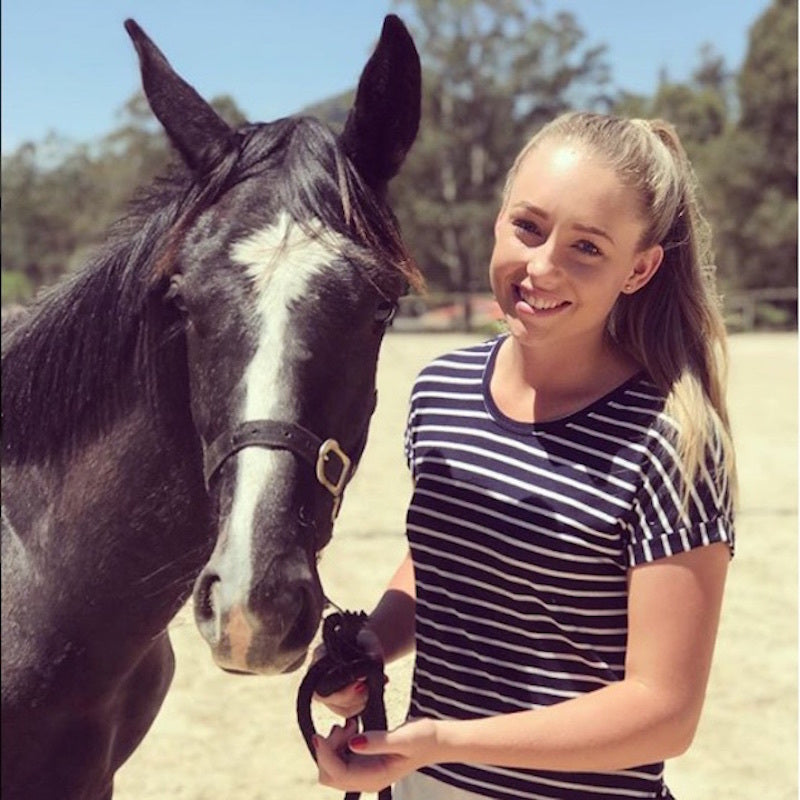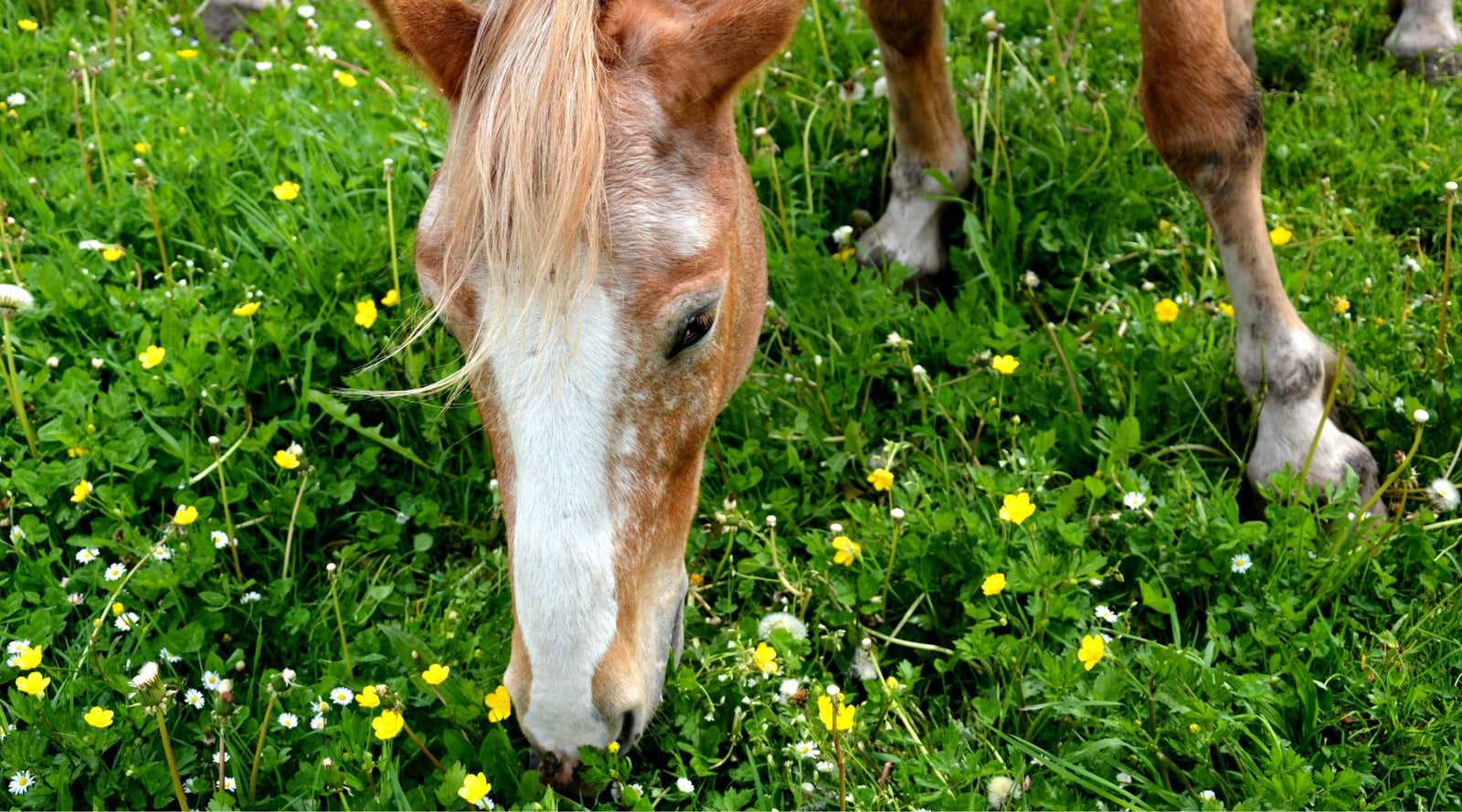Triple Hippo Rewards points are now available on all purchases made before midnight 24th February 2026.
Triple Hippo Rewards points are now available on all purchases made before midnight 24th February 2026.
Horse & Rider
How to Identify, Manage, and Prevent Ticks in Cows & Livestock
by Trevor Wadams October 13, 2025

Ticks may be small, but they can cause big problems for farmers. A single infestation can affect herd health, milk yield, and overall productivity, making tick prevention in cows and livestock an essential part of farm management. Regular inspections, pasture maintenance, and the right tick control solution can make all the difference. For those looking for a natural, chemical-free tick repellent that’s easy to use and cost-effective, our Ticks Plus – Livestock offers a practical alternative to conventional tick treatments for cattle, sheep, goats, pigs, and other farm animals.
Key Highlights
- Common tick species: The New Zealand Cattle Tick, Cattle Tick (Australia), and Paralysis Tick are among the most widespread threats to livestock.
- Early detection is vital: Regular tick counts help track infestation levels and guide your tick management plan.
- Reduce tick habitats: Keep pastures short, rotate grazing areas, and remove weeds or brush where ticks thrive.
- Support herd health: Strong immune systems make animals more resilient to tick-borne diseases.
- Use a natural tick repellent: Ticks Plus – Livestock repels ticks by subtly altering body odour so they don’t detect dosed animals as a host. It’s chemical-free and has no withholding period.
- Easy trough dosing: Adding to the water trough will dose all animals that drink from that trough, so there’s no need for chemical sprays or pour-ons.
Whether you’re dealing with a mild infestation or want to prevent ticks before they take hold, a combination of good pasture management and natural repellents can keep your herd healthier and more comfortable year-round. Read on to learn how to identify ticks, manage infestations, and see how Ticks Plus – Livestock can simplify tick prevention on your farm.
Common Types of Ticks in Cattle and Livestock
In New Zealand the most common tick is the New Zealand Cattle Tick (Haemaphysalis longicornis).
In Australia, livestock are more likely to be affected by the Cattle Tick (Rhipicephalus australis) or the Paralysis Tick (Ixodes holocyclus), as well as the New Zealand Cattle Tick.
Globally, the most common species include the Lone Star Tick (Amblyomma americanum) and the Blacklegged Tick (Ixodes scapularis).
Most tick repellents, including our Ticks Plus Livestock, are effective on all of the most common species of tick.
Understanding the size of the Tick Problems
Doing a tick count helps to understand the level of tick infestation and the amount of monitoring for tick-borne diseases required. It also assists with evaluating the effectiveness of your chosen tick control method.
To conduct a tick count:
1. Start by inspecting areas where ticks often hide – at the butt of the tail, around the udder, vulva and thighs, on the flank, belly, dewlap, neck and ears.
2. Use your fingertips to count the lumps and bumps on one side of the animal.
3. Double the number to estimate the total number of ticks that animal has.
4. Multiply by the size of your herd.
Managing Ticks
Ticks can affect all types of livestock: Deer, sheep, goats, cows, pigs and even alpacas are frequently affected by ticks. Fortunately, tick treatments are the same for all types of livestock. Once ticks are present, treating your herd is essential. However, there are other things you can do to minimise the likelihood of a new tick infestation.
Reduce Tick Habitats
- Keep grazing areas clear of tall grass, brush, and weeds where ticks thrive.
- Rotate pastures to minimize tick exposure.
Support Herd Health
- Healthier animals are more resilient to tick-borne diseases. Ensure a balanced diet to support their immune systems.
Use a Tick Repellent
Innovative solutions like Ticks Plus – Livestock offer an effective and chemical-free way to repel ticks on cows, sheep, goat and other livestock without the need for a withholding period.
The Role of Ticks Plus – Livestock in Tick Management
Ticks Plus – Livestock is an innovative, 100% natural tick repellent for cows and livestock that’s effective, economical, and easy to use. It’s professionally formulated to subtly alter the body odour of livestock, making them undetectable to ticks. The change is so subtle that it’s unnoticeable to humans or other animals in the same herd.
Trough Dosing Made Simple
Administering Ticks Plus is as easy as adding it to your livestock’s water supply:
- Add 25mls (1oz) of remedy to a 500L (100-gallon) water trough every second day.
- The active ingredients disperse in the water, ensuring all animals drinking from the trough are dosed consistently.
- The remedy remains effective without frequent trough cleaning, as sunlight naturally degrades residues after three days.
Why Choose Ticks Plus – Livestock
- No Withholding Period: This homeopathic remedy is safe for use in meat and dairy animals without affecting productivity.
- Multi-Insect Repellent: Effective against ticks, mosquitoes, midges, Buffalo Flies, Stable Flies, and Blow Flies.
- Stress-Free Management: Simplifies tick control, saving you time and labour.
- Economical: Dosing livestock with our natural tick repellent can cost as little as $0.01 per day when using our 5-Litre Jerry Can to dose 100 cows sharing a 500-Litre water trough.
Want to know more? Find out about how trough dosing works, or read our FAQs and testimonials from happy customers!
Final Thoughts
Ticks may be small, but their impact on livestock health and farm productivity can be huge. Regular inspections, good pasture management, and nutritional support are all important steps in reducing tick populations and preventing tick-borne diseases. For long-term control, using a natural tick repellent like Ticks Plus – Livestock offers an effective, chemical-free way to protect your herd.
Dosed through the water trough, this remedy makes tick management simple, affordable, and stress-free—no sprays, no pour-ons, and no withholding period. Whether you’re caring for cows, sheep, goats, pigs, or a mixed herd, Ticks Plus – Livestock helps keep animals comfortable and biting bugs at bay, all while supporting a more natural approach to herd health.
More Remedies For Ticks and Biting Bugs
We also make remedies to repel ticks and other biting bugs for horses, cats, dogs and even humans. Use Ticks Plus Equine for horses, BioPet Fleas & Ticks for cats, dogs and other pets or for human mozzIe magnets give our Mozzies Plus a try!

Agricultural Research & Farm Operations Specialist
Trevor Wadams
Trevor has extensive experience in agricultural research and farm operational business management. He is committed to sustainable long-term animal production and farm productivity.
Trevor focuses on cost-effective animal health and husbandry practices and strategic operational management solutions to reduce overheads, improve yield, thereby ensuring the long-term financial health of the farming business.
General Disclaimer: Always follow dosing instructions. Our remedies are formulated to support the natural immune system of horses, pets, livestock, and people. We do not claim to treat, medicate, or cure any health conditions. If you are worried an animal may be in pain or suffering, please contact your veterinarian.




